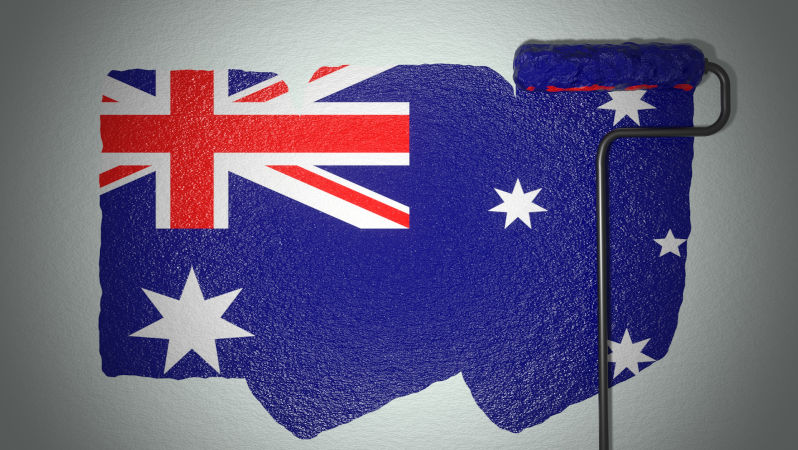These days the politics in the Australian parliament is little more than puerile game-playing, echoing what goes on endlessly and tediously in the undergraduate political clubs in our universities. It’s all about organising and winning the numbers. It lacks an ethical core, resulting in the country being paralysed by the politics of ennui and hopelessness. Prime Minister Albanese seems all at sea when it comes to changing this depressing political culture.
The vast majority of Australia’s federal MPs are politically timid; they nervously dance around any substantial defence of their tepid public policies; they are noteworthy only for their cynical point-scoring. There is no oratorical passion or philosophical depth in parliamentary speeches. MPs are only noticeable for their nasty baying at Question Time. Governments baulk whenever confronted by a negative opinion poll or a critical media diatribe. Voters are turning their backs on this whole miserable charade. Democracy is in decline.
Consider some of the great twentieth century political leaders: Mahatma Gandhi, Nelson Mandela, and Martin Luther King Jr, for example. They each had a profound moral core driving their political agendas. This is not to say they were faultless as persons, but they certainly inspired millions across the world and implemented truly progressive reforms, often against huge odds. They understood that a moral vision – one that is underpinned by clearly articulated ethical values – is absolutely vital for achieving political progress.
It seems that Anthony Albanese is only skilled in timorous politics. Where is the moral core of his political agenda? He seems fearful of standing up to what is rapidly becoming the worst Opposition in Australian political history. He is running scared of the malevolent Murdoch media. He thinks voters don’t want radical public policies when in fact they are longing for inspiringly progressive changes to the governance of the country. They are longing for a morally inspiring leader.
Albanese’s most egregious ethical failure so far has been his embrace of the alliance with America. A morally astute prime minister would have flatly turned down the “invitation” to visit the White House in October. It was more an order than an invitation, underlining the Albanese government’s strategic failure to stand up for Australian sovereignty. Moreover, his alacrity in agreeing to be guest of honour at a formal White House dinner during the Washington visit is a grotesquely childish act for a Labor prime minister. It aligns with his ridiculous attendance at Charles III’s coronation along with a gaggle of hangers-on, at tax-payers’ expense.
If he must travel overseas again this year, it should be to Beijing. No one is in doubt that there are huge differences of view between Australia and China, culturally, politically, and strategically. But getting along as best we can with Beijing is the best, the only, way forward for this country, not kowtowing to Washington every time the Americans want to plant another military base (target) on our soil or call on us to purchase their cast-off submarines and other second-hand defence materiel.
The US trip is in grave danger of overshadowing his querulous contributions so far to the debate about the Voice to Parliament referendum. Has he actually given up on this vitally important issue? Is he surrendering to the Dutton Noalition? Why is he being so mealy-mouthed, so desultory, in the way he is engaging with voters across the nation in favour of the Yes case? The country urgently needs a prime minister in full throttle arguing for the Yes case, robustly exposing the lies and slurs – the deeply disgusting immorality – of the Coalition’s No case. He should learn how to do this by reading Martin Luther King Jr’s civil rights speeches.
In fact, the Yes case is contemporary Australia’s equivalent of America’s civil rights movement. Albanese needs to lead an ethically charged campaign up and down the country, right up to the day the referendum is held, articulating this very point. And his pusillanimous Cabinet colleagues should be with him all the way. (The exception is Linda Burney who has been a champion campaigner for the Yes case, but almost single-handedly among her political peers.)
The outcome of the referendum will determine Australia’s international reputation for many years to come. Are we a nation of white supremacists, or are we ready to begin truly “closing the gap”? The referendum will also shape how we think about ourselves as a nation? Are we a generous people, truly egalitarian, or are we a nation that is racially at odds with itself? Albanese just doesn’t seem to understand the Yes case’s moral import. He has no moral fire in his belly.
Meanwhile there are other major issues simmering at the margins of the government’s disappointing policy agenda but which should be centre stage. Comprehensive taxation reform is an urgent matter. Leading a campaign to completely overhaul the taxation system, to make it more progressive and ethically aligned should be at the top of Albanese’s and Chalmers’ agendas. These are profound moral matters, not simply financially rearranging chairs on the deck of the Titanic. Politics is as much about educating voters as it is about staying in power.
Housing policy is also a matter of social justice. It’s not simply about economics; it’s about human wellbeing. So is health policy; a badly needed expanded public hospital and health services program is all about morality in public policy. Education is another vitally important ethical issue. Indeed, we should be hearing much more along these lines from what is actually turning out to be, if not a Morrison-lite government, then a Turnbull-lite government. Australia needs government policies that are first and foremost ethically grounded.
Of course these reforms necessarily raise the issue of where the funding will come from. So what about the government’s pathetic defence of the Stage 3 tax cuts? This is just weak-kneed political expediency. The immorality of those tax cuts should be driving Albanese’s opposition to them, not his feeble quibbling about past election “promises”. So too with issues like negative gearing and franking credits. These are deeply moral matters, not matters of political image making.
Nonetheless, there are some hopeful signs emerging in our politics. A new generation is beginning to make its presence felt with the voting public and in parliament. Younger voters are turning away from the mainstream parties in droves. In the parliament, glimmerings of this new generation’s potential are evident in Greens MP Max Chandler-Mather’s ethically astute stand on housing and rent policies, much to Albanese’s discomfort. David Pocock is also an inspiring representative in the Senate, along with most of the independents, all demonstrating that ethical politics is both possible and attractive for voters.
May there be many more of these excellent people come the next federal election!
Dr Allan Patience is an honorary fellow in political science in the University of Melbourne.

